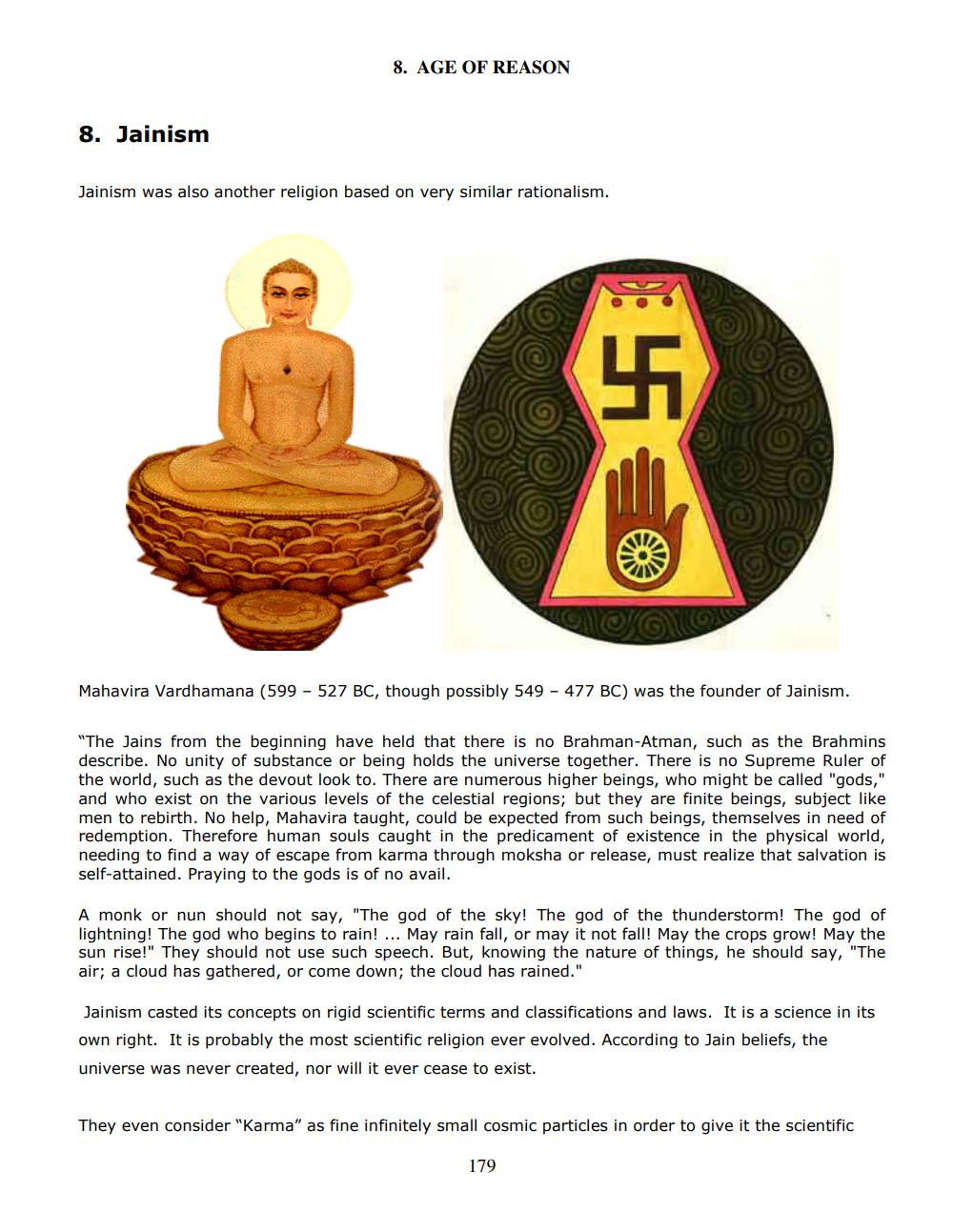________________
8. Jainism
8. AGE OF REASON
Jainism was also another religion based on very similar rationalism.
47
Mahavira Vardhamana (599 - 527 BC, though possibly 549 - 477 BC) was the founder of Jainism.
"The Jains from the beginning have held that there is no Brahman-Atman, such as the Brahmins describe. No unity of substance or being holds the universe together. There is no Supreme Ruler of the world, such as the devout look to. There are numerous higher beings, who might be called "gods," and who exist on the various levels of the celestial regions; but they are finite beings, subject like men to rebirth. No help, Mahavira taught, could be expected from such beings, themselves in need of redemption. Therefore human souls caught in the predicament of existence in the physical world, needing to find a way of escape from karma through moksha or release, must realize that salvation is self-attained. Praying to the gods is of no avail.
A monk or nun should not say, "The god of the sky! The god of the thunderstorm! The god of lightning! The god who begins to rain! ... May rain fall, or may it not fall! May the crops grow! May the sun rise!" They should not use such speech. But, knowing the nature of things, he should say, "The air; a cloud has gathered, or come down; the cloud has rained."
Jainism casted its concepts on rigid scientific terms and classifications and laws. It is a science in its own right. It is probably the most scientific religion ever evolved. According to Jain beliefs, the universe was never created, nor will it ever cease to exist.
They even consider "Karma" as fine infinitely small cosmic particles in order to give it the scientific
179




